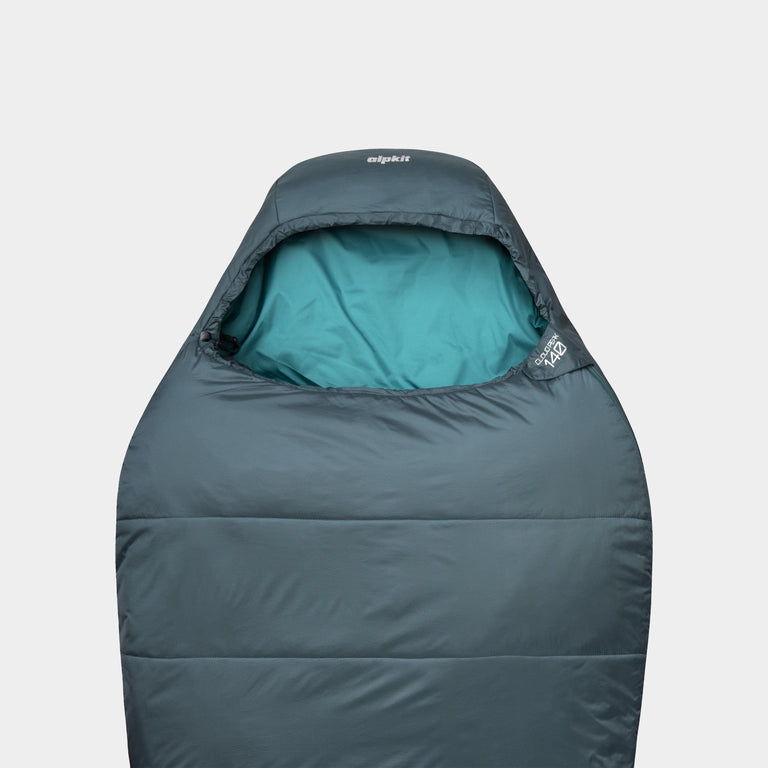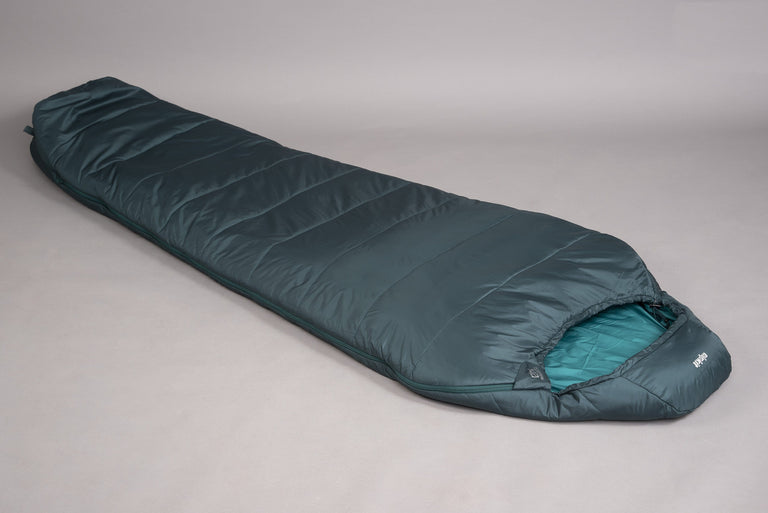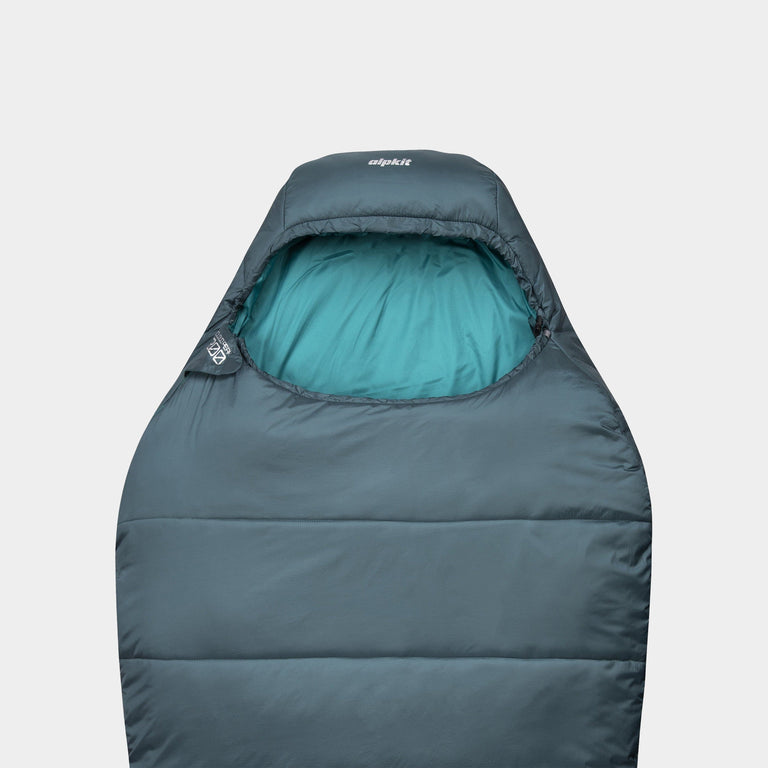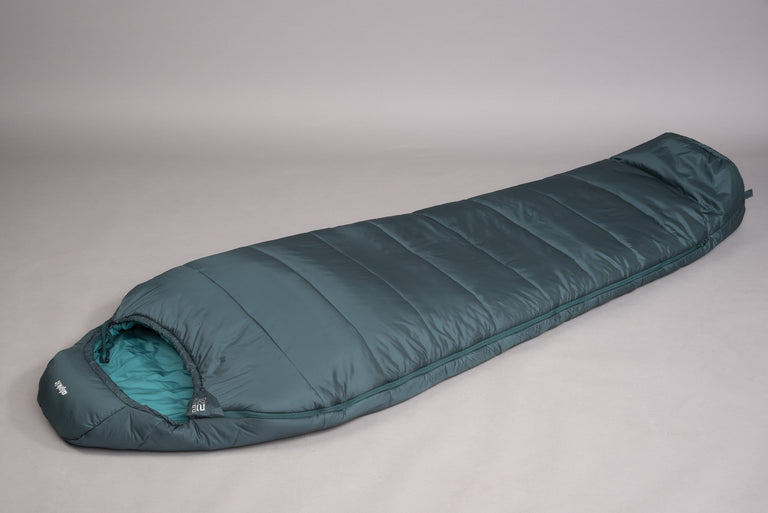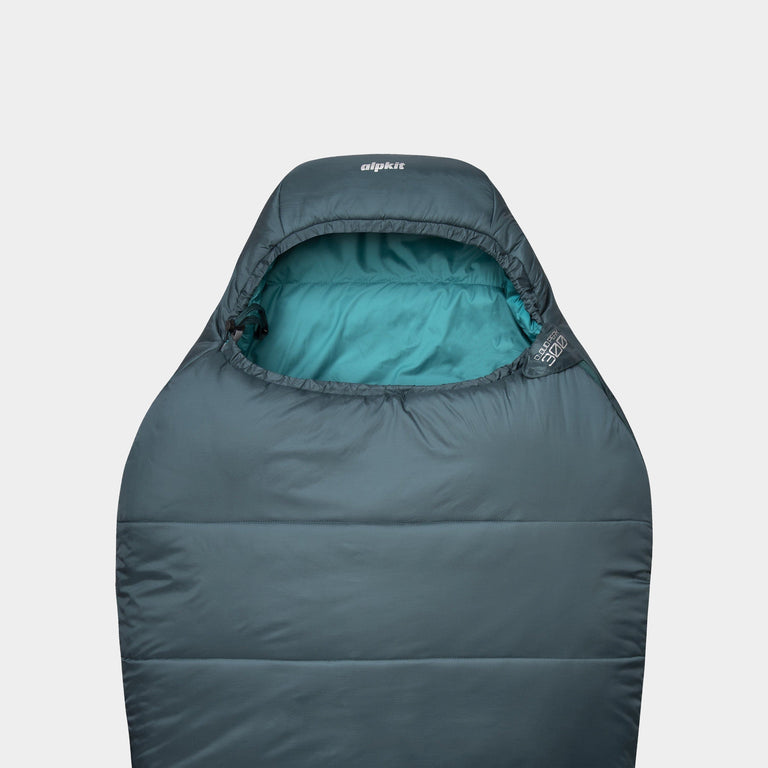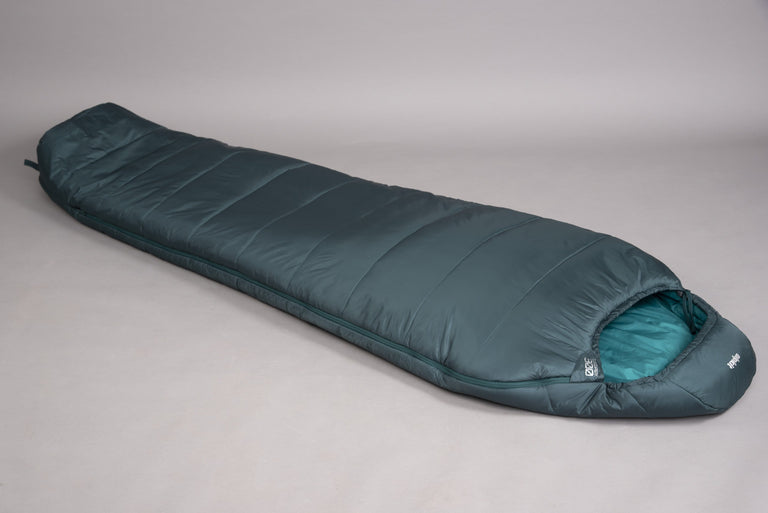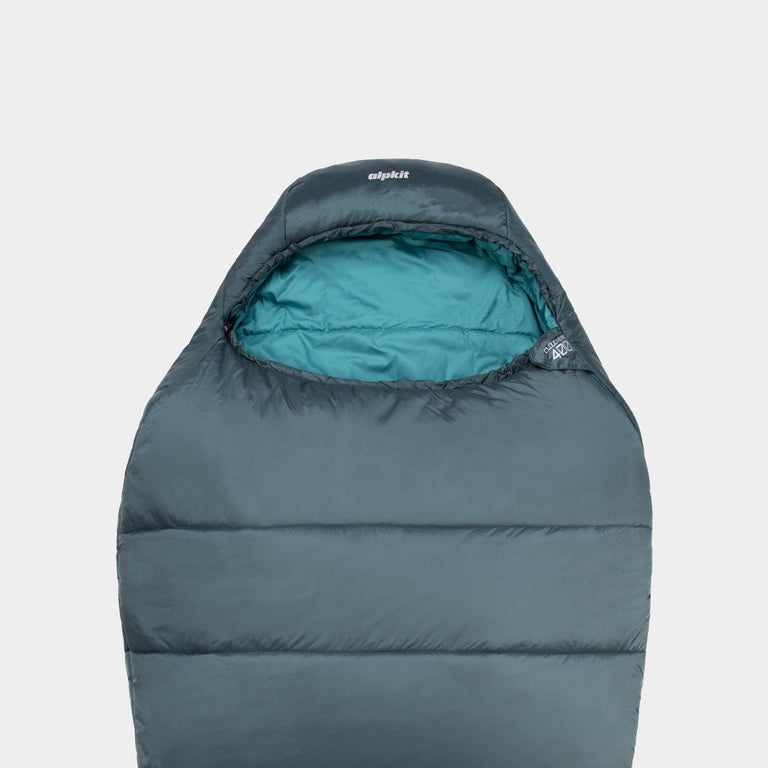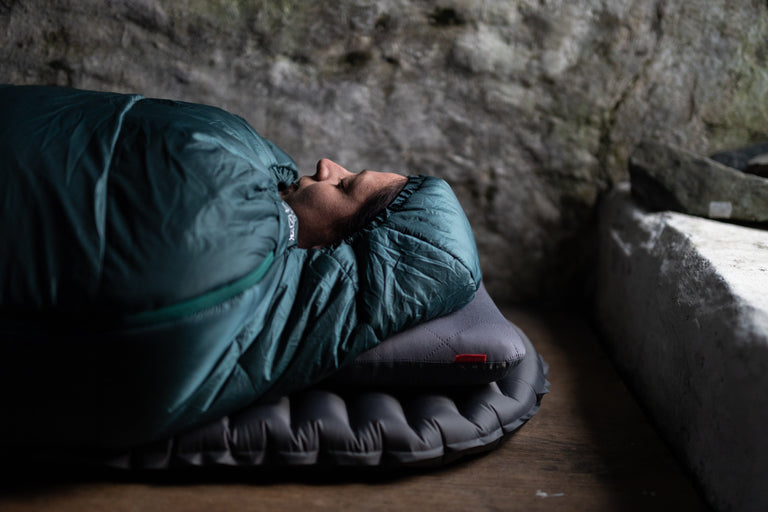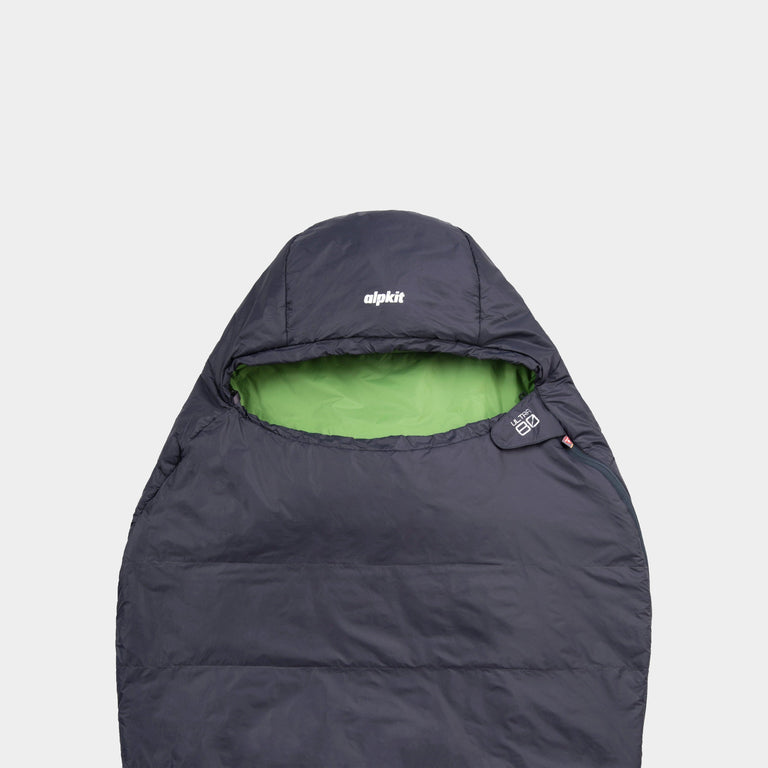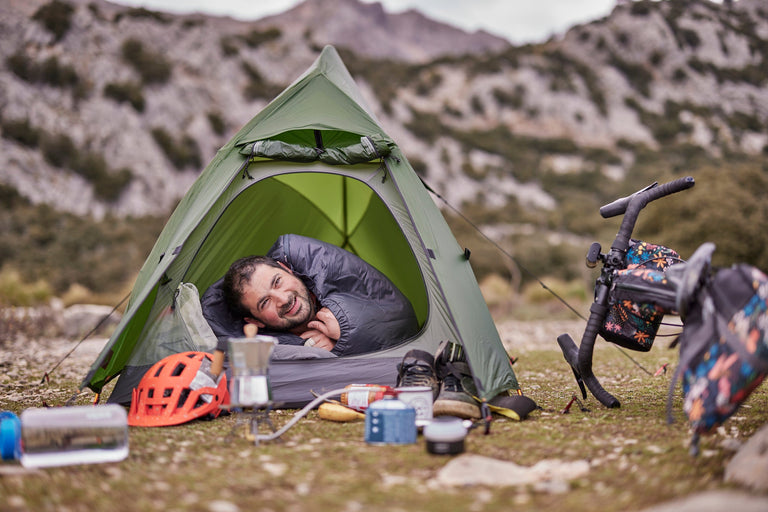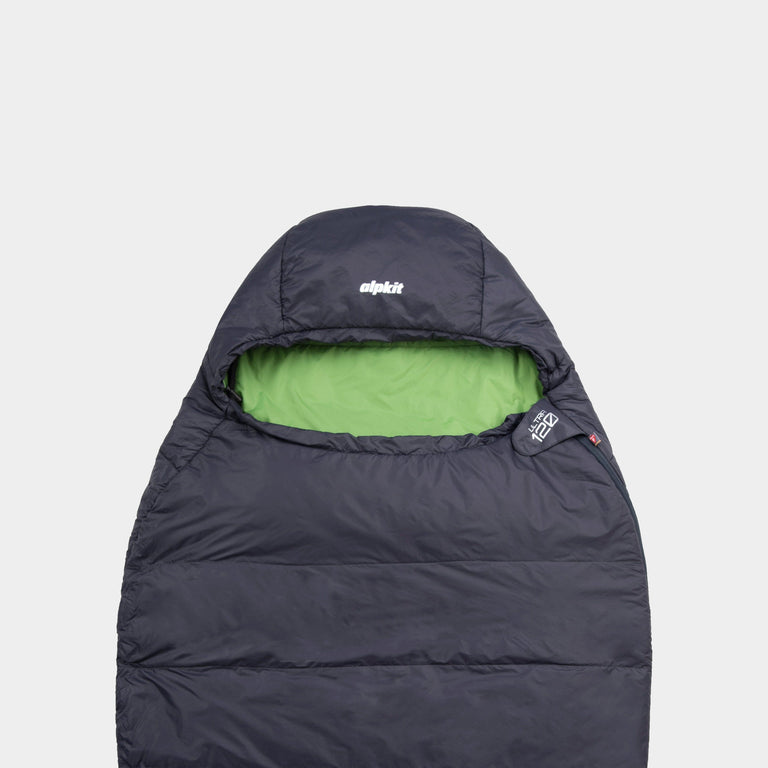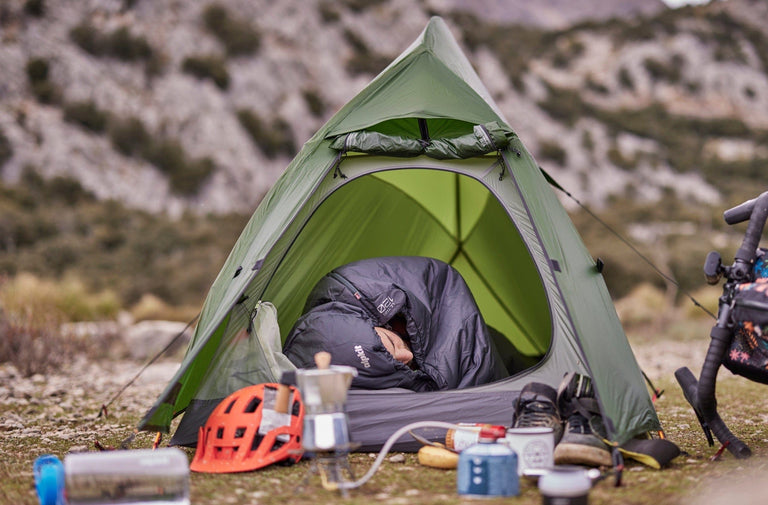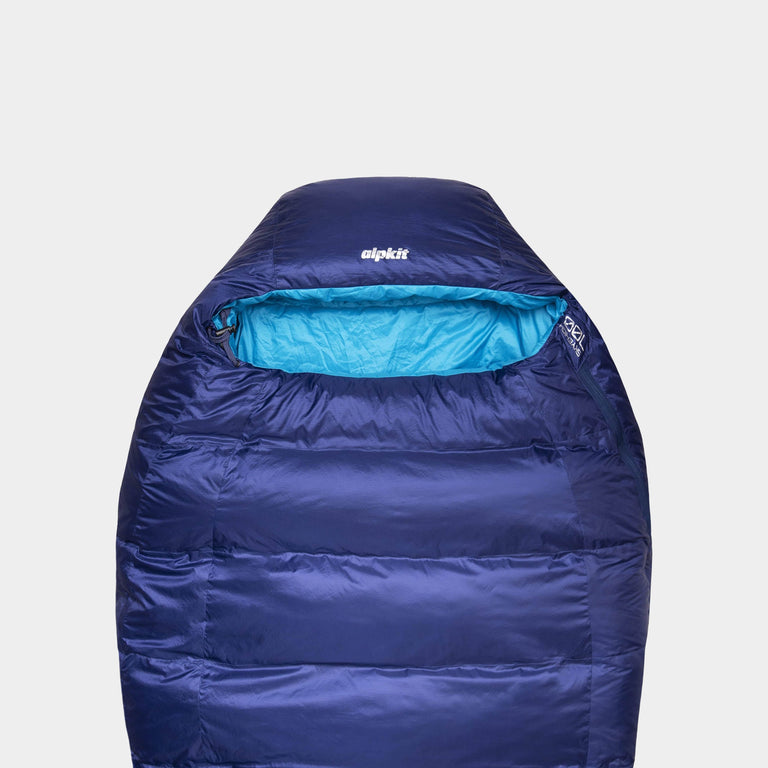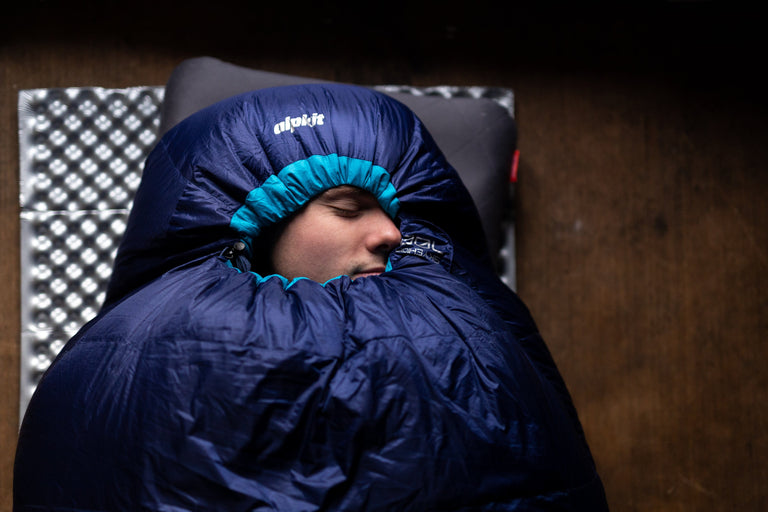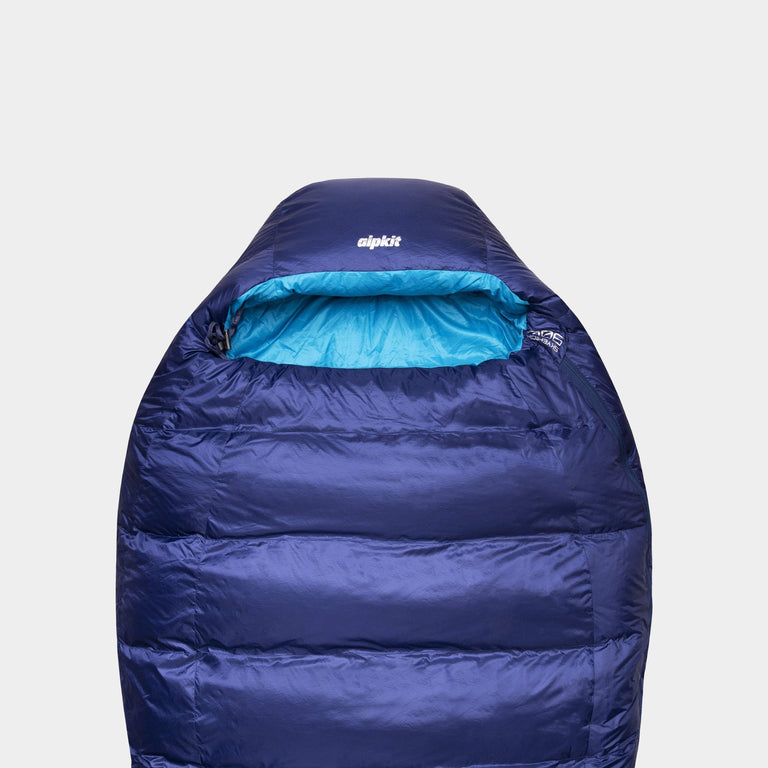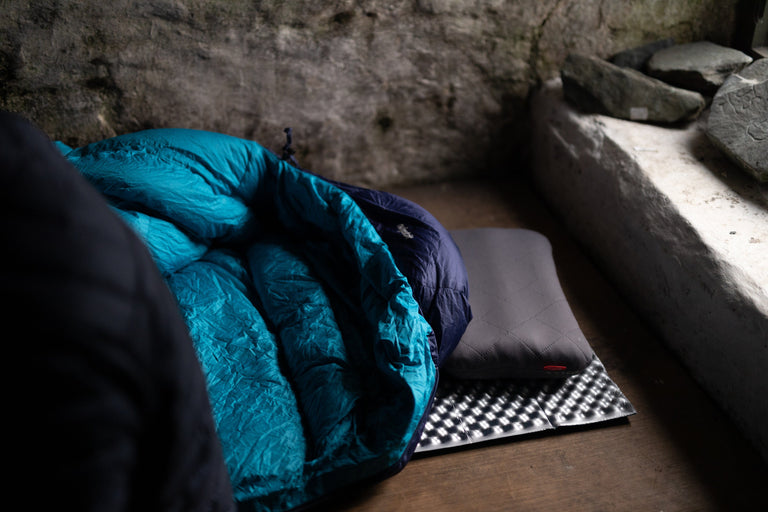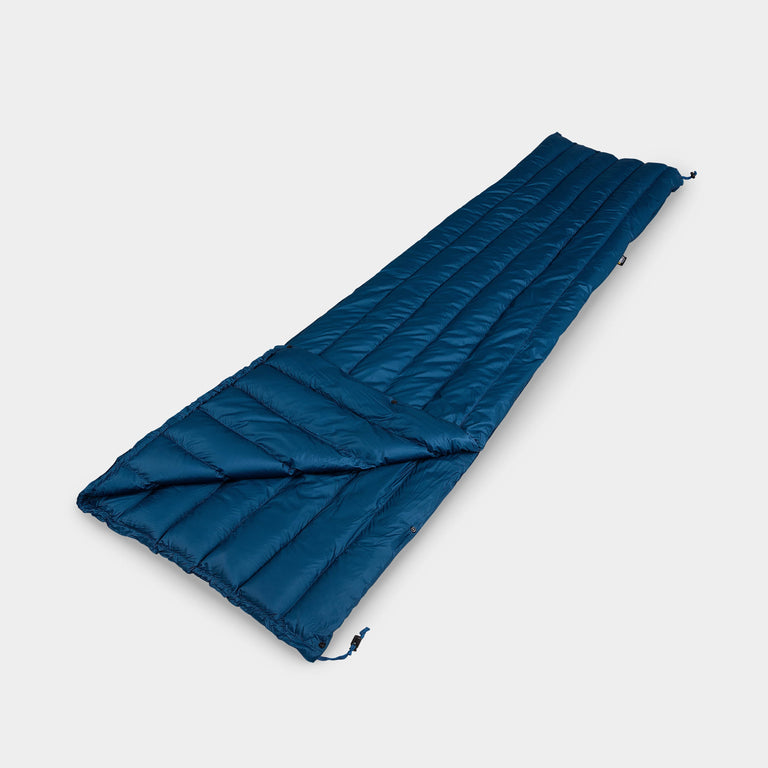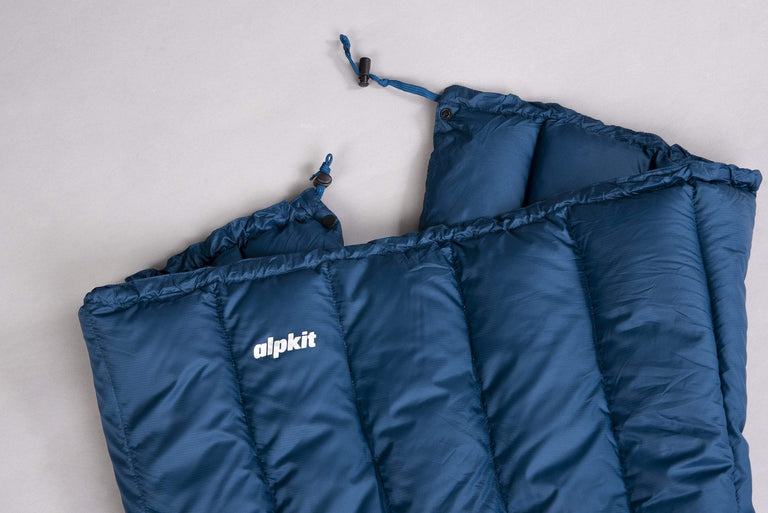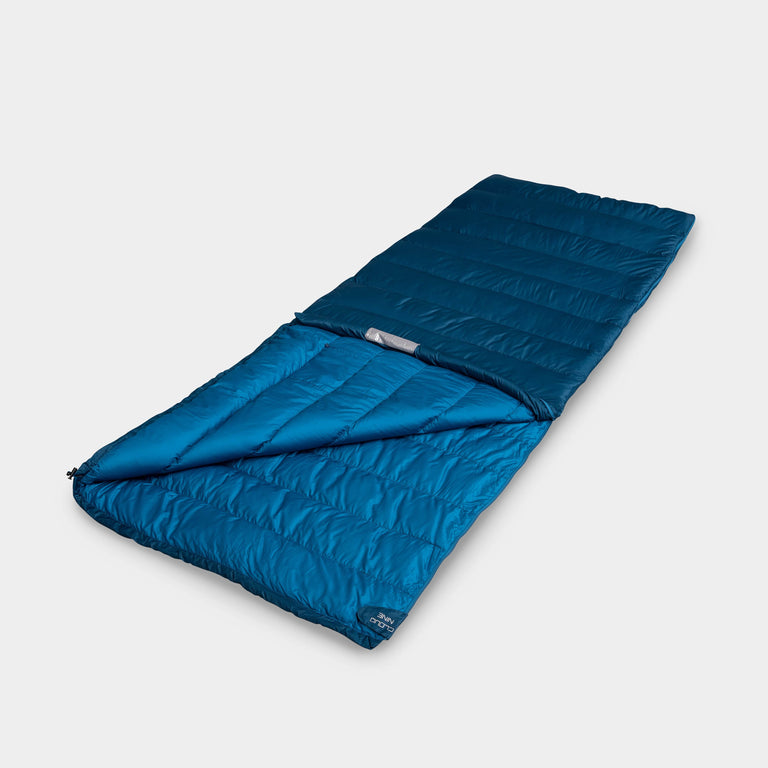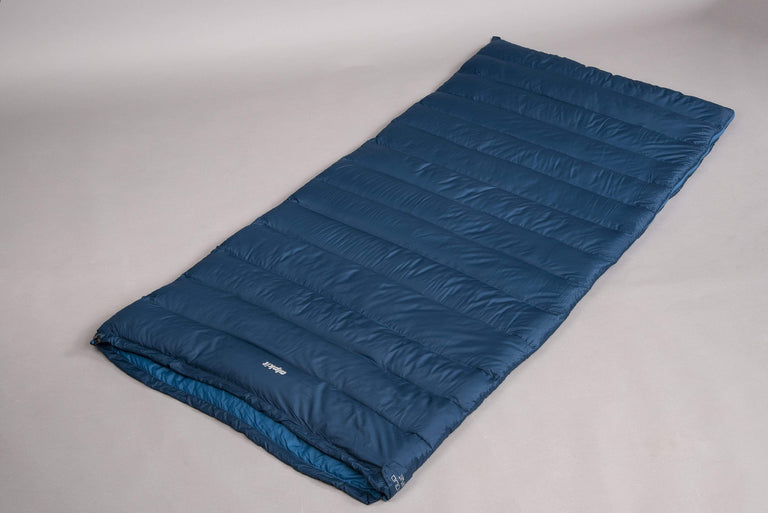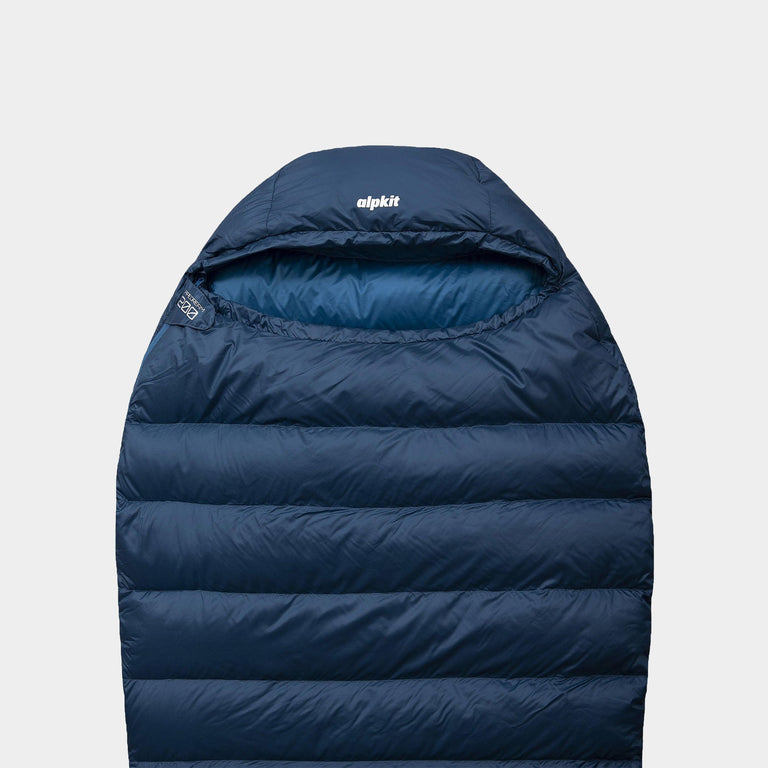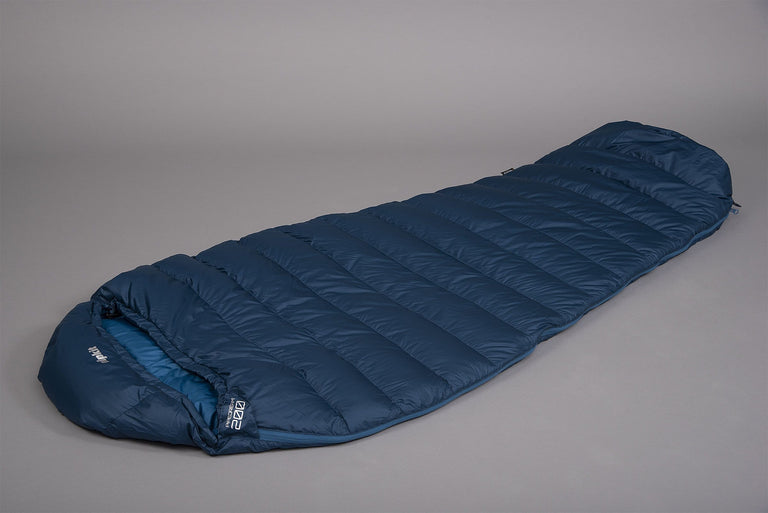
Find a basecamp for your winter hiking, running or cycling adventures with these 5 campsites open all year round.
Winter camping isn't just for the hardcore. It's for anyone who's ever wished they could have the hills to themselves, who's tired of battling midges in August, or who simply wants to experience the mountains under a dusting of snow. The mornings are crisp, the nights are long, and the weather, contrary to popular belief, can actually be more stable than the fickle conditions of a British summer.
If you're a confident summer camper who's been eyeing winter adventures with curiosity, this is your way into winter camping. No need for an expedition to the Arctic Circle; some of the UK's best campsites stay open all year round, offering everything from mountain access to coastal trails. All you need is the right kit, a bit of know-how, and a willingness to embrace the season.
Here are five campsites that prove winter camping is not only possible, it's brilliant.

1. North Lees Campsite, Peak District, Derbyshire
Camp here for: Gritstone climbing, winter hillwalking, and trail running
Tucked away in woodland just 1.5 miles from our Hathersage store, North Lees is a walker's and climber's paradise. Stanage Edge, one of Britain's most iconic gritstone crags is literally on your doorstep, while trails to Robin Hood's Cave and across the moorland offer endless opportunities to explore.
The site provides generous space for tents with the shelter of trees, and for those wanting a bit more comfort, wooden camping pods are available with heating. In winter the Peak District transforms into a wonderland of frosted moorland and dramatic rock formations, with far fewer crowds than summer months.
This is proper hillwalking country, where you can test yourself on winter scrambles or simply enjoy peaceful trails through some of England's most loved landscapes. The proximity to Hathersage also means proper pubs and supplies are within easy reach.
Getting there: Be adventurous and take the train line between Sheffield and Manchester to Hathersage. A beautiful 1.5 mile walk takes you past the Alpkit shop to the camp site.
Website: North Lees Campsite

2. Gwern Gof Isaf Campsite, Snowdonia, Wales
Camp here for: Mountain adventures and winter challenges
For those ready to experience mountain camping, Gwern Gof Isaf delivers the full experience. Sitting at the foot of Tryfan with Yr Wyddfa (Snowdon) within striking distance, this is where winter hillwalking takes a step up.
The campsite has the basic amenities and revels in an authentic mountain atmosphere. Head here for the peaks, winter transforms Snowdonia into a realm of snow-covered ridges, icy waterfalls, and challenging scrambles that rewards you with views across the sea. You can even see Ireland on clear days.
This site suits confident campers who are comfortable with self-sufficiency and winter mountain conditions. In the right conditions the famous Ogwen Valley provides highly sought after winter climbs, whilst the scambling and gentler valley walks offer alternatives when the summits are shrouded in cloud. The A5 running through the valley means resupply and escape routes are never far if needed.
The campsite is on a working farm and does not allow dogs under any circumstances.
Getting there: On the A5 between Bangor and Betws-y-Coed, Ogwen Valley
Website: Gwern Gof Isaf Campsite
3. Orchard Springs Campsite, Bodmin, Cornwall
Camp here for: Van life, roof tent camping, and exploring both Cornish coasts
Finding a campsite in Cornwall that accepts any kind of camping through winter is genuinely challenging, most close their gates from October to Easter. Orchard Springs is a rare gem that stays open year-round, though with an important caveat: winter camping here is for motorhomes, campervans, and roof tent setups only. Traditional tent camping runs from May to September.
This small, family run site has just 30 pitches tucked away in a quiet location beside a stream that feeds into the Camel River. You're minutes from the Camel Trail cycle path, which runs all the way to Padstow's harbour, perfect for winter cycling when the trail is far quieter.
The site's positioning is its real strength: equal distance from both north and south Cornwall coasts, a mile from Bodmin town for supplies, and fifteen minutes from both the Eden Project and Lanhydrock House. Winter surfing at Polzeath or Watergate Bay? You're there in twenty minutes. Dogs are welcome, and there's a 2-acre field for off-lead running.
The hosts bake fresh pastries and croissants each morning and serve proper barista coffee, small touches that make winter mornings considerably better. All pitches include electric hook-up at no extra charge.
A note on winter tent camping in Cornwall: If you've found campsites in Cornwall or Devon that genuinely accept traditional tent pitches through winter, we'd love to hear about them. Share your discoveries with us, winter tent camping in the South West remains elusive, and the community would benefit from your knowledge.
Getting there: Near Bodmin, just off the A30
Website: Orchard Springs Campsite

4. Hadrian's Wall Campsite, Northumberland
Camp here for: Roman history, dark skies, and Northumberland's wilderness
This small, family-run site proves that winter camping near Hadrian's Wall is both achievable and magical. Terraced across different levels with commanding views over open countryside, the campsite sits less than a mile from one of the most complete and dramatic sections of the UNESCO World Heritage Site.
Choose from tent pitches sheltered by the terrain or upgrade to one of the cosy shepherd's huts with wood-burning stoves. The site's compact nature means it never feels crowded, even in busier periods. This is camping with character—duck ponds, visiting robins, and genuinely warm hospitality from hosts who clearly love their corner of Northumberland.
Winter here reveals the wall at its most atmospheric. You can walk directly to famous sections like Sycamore Gap's new memorial, explore Roman forts at Housesteads and Vindolanda, and enjoy some of England's darkest skies for stargazing. After a day on the wall, return to proper facilities without sacrificing the adventure.
Getting there: Near Bardon Mill, Northumberland, just off the B6318 Military Road
Website: Hadrians Wall Campsite
5. Whitlingham Broad Campsite, Norfolk
Camp here for: Accessible winter camping and paddle sports
Not everyone wants Himalayan conditions for their first winter camp. Whitlingham Broad offers the perfect entry point: an 80-acre country park with traditional camping just minutes from Norwich.
The site overlooks the Broad, a haven for winter waterfowl and paddle boarders brave enough to face the chill. Cosy shepherd's huts provide a comfortable option for those easing into winter camping, while tent pitches offer the full experience with nearby facilities.
The location makes it ideal for combining camping with other winter activities: cycling along flat tow paths, open boat river touring, or simply walking through frost-covered parkland. The proximity to Norwich means excellent pubs, shops, and escape routes are close by, taking the pressure off kit planning for first-timers.
Getting there: Just outside Norwich, easily accessible from the A47
Website: Whitlingham Broad Campsite
Year-round sites up and down the country
We have pulled out just 5 campsites we know are open all year round. There are lots more.
The National Trust has camping sites across England, Wales and Northern Ireland. Quite often these sites are right next to lakes, mountains rivers or beaches. Dramatic settings, unforgettable in winter conditions.
Glenmore Campsite, Cairngorms National Park – Camping on the shores of Loch Morlich with direct access to skiing, winter hillwalking, and if you are lucky the Northern Lights. Excellent facilities with forest shelter and proximity to Aviemore.
These sites provide the reassurance of established infrastructure while still delivering genuine mountain experiences. They're excellent choices for those building confidence before exploring smaller, more independent sites.
Setting up camp for winter
Winter camping requires a bit more thought than summer pitching, but follow these principles and you'll stay comfortable:
Site selection matters more in winter. Look for natural windbreaks like trees or landforms but avoid valley bottoms where cold air pools. On official sites, ask staff for the most sheltered pitches and consider how long it will take you to get to the facilities.
Pitch on the driest ground possible. Even a slight slope helps drainage. Use a footprint groundsheet and add insulation like a closed cell foam mat underneath your regular sleeping mat.
Guy lines need extra attention. Use all your tent's guy points to keep the flysheet taught to shed over night snow and consider adding extra pegs. Take a strong iron nail and a mallet to get pegs started in frozen ground. A cheep tarpaulin you can place under your tent will help with waterlogged ground.
Create a porch area. Even the smallest porch space makes winter camping more pleasant. It helps prevent a chill wind blowing through your cosy tent, use it to store wet gear, cook in shelter, and keep your sleeping area dry. A tarp extension is a great way transform your setup.
Think about your morning routine. Keep tomorrow's clothes in your sleeping bag overnight, putting on warm clothes in the morning makes everything easier. Have a hot drink planned before you face the day.
The difference between miserable and magical often comes down to these small details. Get your pitch sorted properly, and everything else falls into place.
Essential Equipment for Winter Camping Comfort
We have many comprehensive articles on our site to help you chose what to wear, what equipment to use and how to use it. The following is a summary with a link to these articles.
Staying warm while you camp in winter
Your sleep system makes or breaks winter camping. You need a sleeping bag rated for lower temperatures than you expect, add at least 10°C buffer. A four-season bag is ideal, but you can extend a three-season bag with a liner.
Make sure your tent has a inner tent. As thin as this layer is it will help trap air and insulate.
The need for a good sleeping mat is often underrated. Cold ground will rob your warmth faster than cold air. Look for mats with an R-value of 4 or higher for winter use, or double up summer mats for extra insulation. Read more about optimising your sleeping bag's warmth and choosing the right sleeping mat.
Don't leave your hot water bottle at home. Fill a durable bottle before bed, wrap it in a spare fleece, and tuck it into your sleeping bag. It'll keep you warm through the coldest part of the night. Some campsites may have a microwave where you can heat up a gel heatpack - less chance of it bursting in your bag. Sleeping bag liners add warmth, but also keep your expensive bag cleaner, worth considering with our comprehensive sleeping bag liners guide.
Consider how warm your sleeping bag needs to be with our guide on sleeping bag temperature ratings.
Staying dry
Moisture is your enemy in winter. A quality four-season tent with good ventilation prevents condensation build-up. Keep wet gear in the porch, never in your sleeping area.
Cotton tents breathe better than a nylon or polyester tent which means less condensation forming on the inside. However if it does get wet and freezes it will become heavier and stiffer.
Pack everything in dry bags, even inside your rucksack. Keep tomorrow's clothes in a separate waterproof stuff sack in your sleeping bag. Have a designated dry bag for electronics and firelighters.
Consider a small camping towel for mopping condensation from tent walls in the morning. Prevention beats cure: ventilate well, keep wet gear out, and deal with dampness immediately rather than letting it accumulate.
Providing light
Winter means long nights—you'll need robust lighting. A good headtorch is essential for camp tasks and midnight bathroom trips. Look for models with red-light modes to preserve night vision and avoid disturbing other campers.
Add ambient lighting for the tent interior: small LED lights on lanyards or inflatable solar lights create a welcoming space without draining batteries. Keep spare batteries warm in your sleeping bag—cold kills battery life. Our lighting guide covers all your options.
Bring more light sources than you think you'll need. When darkness falls at 4pm you will be glad you made the effort. Good lighting transforms your tent from gloomy cave to cosy refuge.
Cooking meals
Hot food and drinks are essential for morale and warmth. Gas stoves work well, but performance drops in cold temperatures. Keep canisters warm and consider winter-specific gas blends. Learn more about choosing the right camping stove and gas.
Cook in your porch area with excellent ventilation, never inside the tent. Windshields make stoves more efficient, and insulating your pot from the ground prevents heat loss.
Plan warming one-pot meals that are quick to prepare. Think beyond dehydrated rations: fresh ingredients at the start of your trip, transitioning to dried foods later. Hot drinks are as important as food, bring extra hot chocolate, tea, or soup. Our winter chef has some ideas for hot meals.
Culinary adventurer Paul Messner recommends pre-cut vegetables at home and pre-portion spices to save time in cold conditions. The less faff, the better.
What to wear
Layering is everything. Base layers should be merino wool or synthetic. Anything but cotton. Mid-layers provide insulation: fleece or lightweight down. Your outer layer needs to be waterproof and windproof.
Keep your extremities warm: quality gloves, a warm hat, and thick socks make more difference than you'd imagine. Many campers swear by wearing a hat to bed, if your head's warm, you're warm.
Have a dedicated "warm layer" that only comes out in camp: a thick down jacket or insulated jacket that never gets sweaty from hiking. This is your evening comfort blanket. Read our complete guide to layering for camping.
Bring spare everything: socks, gloves, base layers. Wet gear in winter is dangerous, not just uncomfortable. Pack more than you think you'll need.
A pair of thick socks and wellies for slopping around the campsite will keep your feet dry and you happy.
For comprehensive advice on winter camping kit and techniques, visit our winter camping tips.
Your winter camping adventure awaits
Winter camping strips away the crowds, the midges, and the uncertainty. You get crisp conditions, stable weather patterns, and a different kind of beauty in the hills. These five campsites are open year-round because they understand what winter camping offers: peace, challenge, and a chance to experience Britain's wild places in their purest form.
You've already got the skills from summer camping. Now pick your site, pack your kit and have some fun in winter frost.
